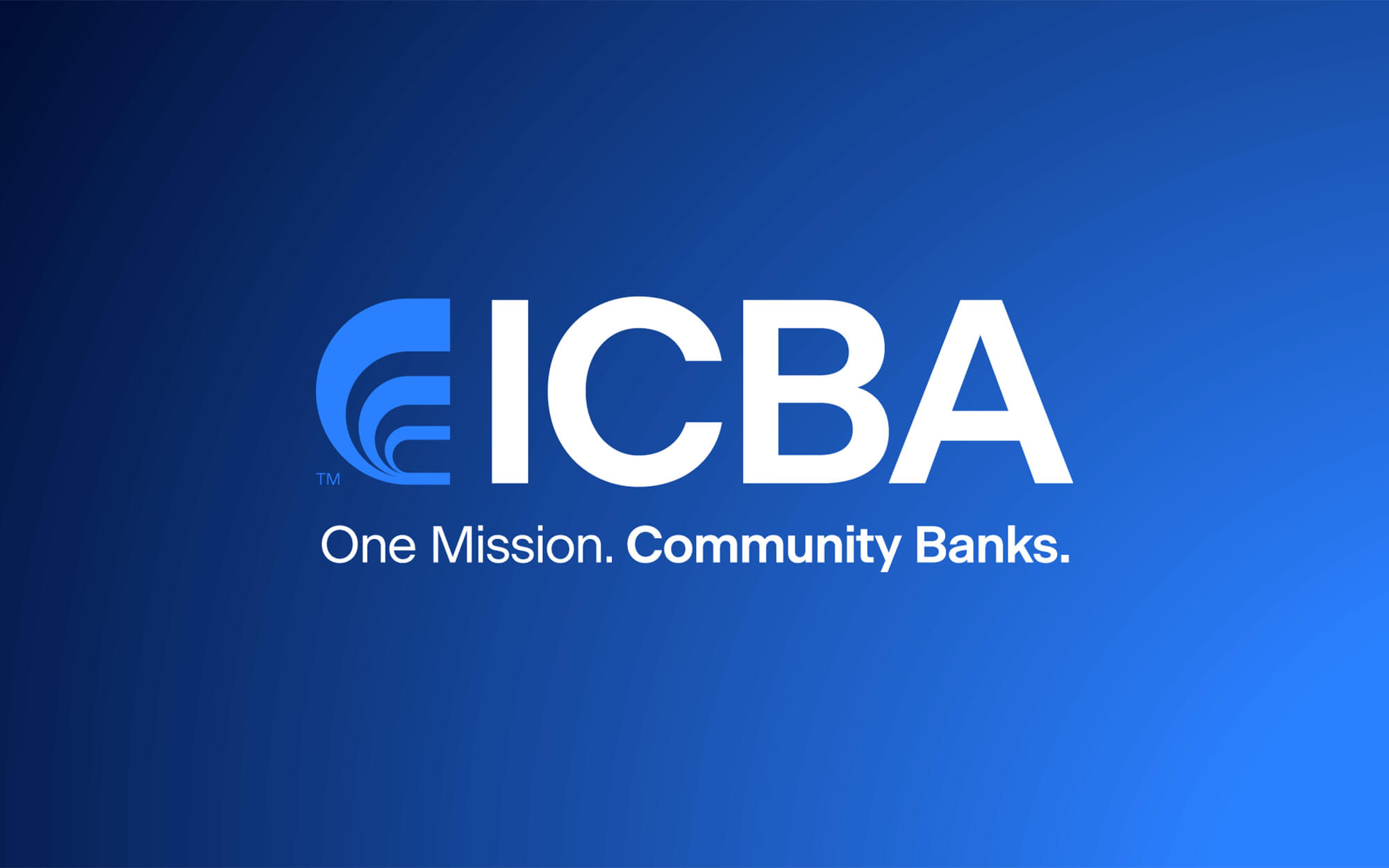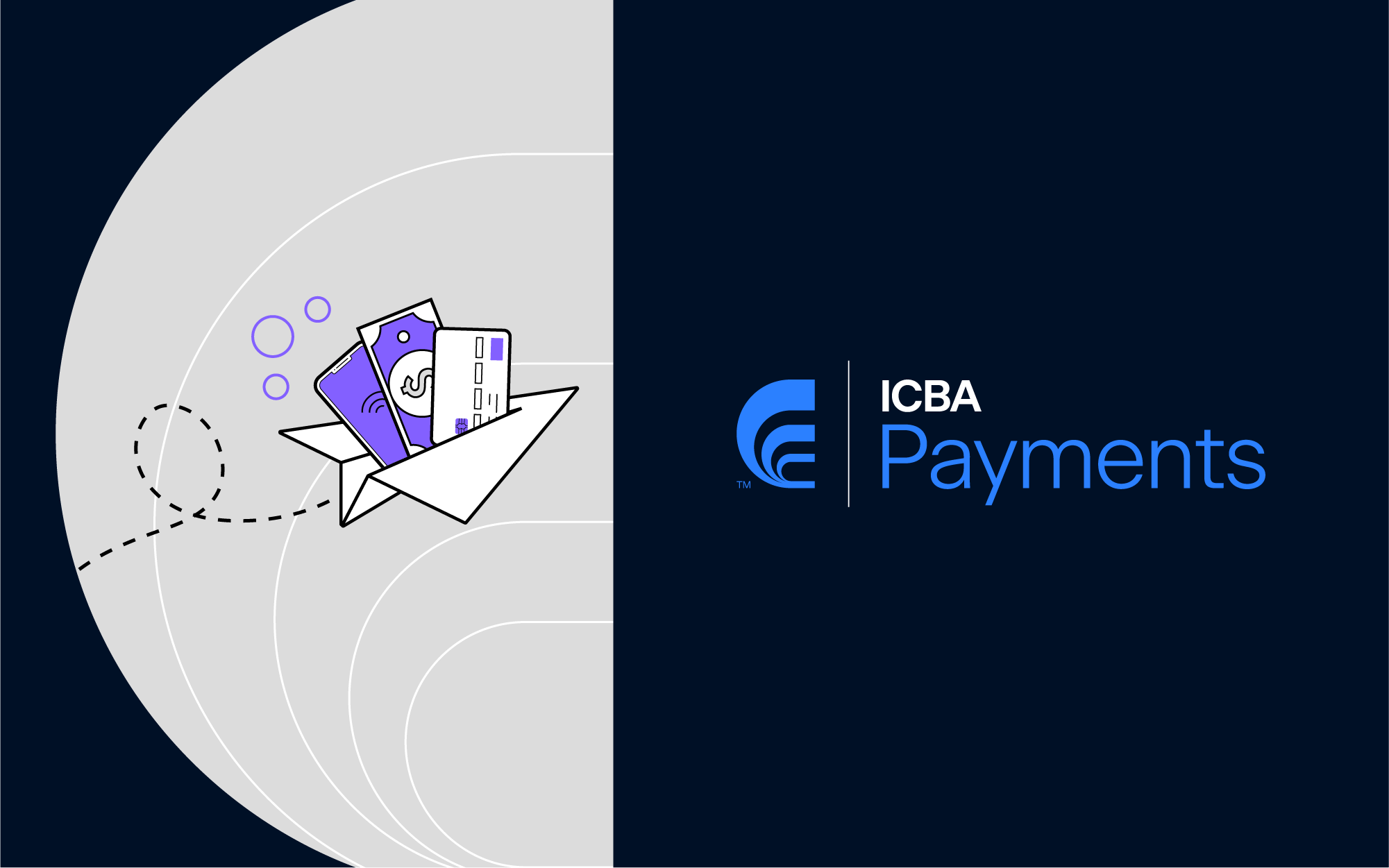Durbin Amendment Rules Harm Community Banks Without Benefiting Consumers
Washington, D.C. (Aug. 11, 2021) — The Independent Community Bankers of America (ICBA) today said the Federal Reserve Board should not update debit card interchange regulations without first fully analyzing the effects of the proposed changes on consumers and financial institutions.
In a comment letter, ICBA said that while most community banks already comply with the proposed clarifications, the agency should not alter the regulatory environment for banks amid the ongoing COVID-19 pandemic.
“While the Durbin Amendment is poor public policy that has been empirically proven to harm consumers and the viability of local financial institutions in favor of ‘big box’ and large e-commerce retailers, community banks continue to comply with its provisions,” ICBA President and CEO Rebeca Romero Rainey said today. “ICBA calls on the Fed to study the potential impact of updating its interchange regulations before proceeding with a new rule to ensure it is in the best interest of consumers.”
The Fed board’s proposal clarifies existing rules requiring debit card issuers to ensure that at least two unaffiliated payment card networks have been enabled for debit card transactions, including for card-not-present transactions.
Interested in discussing this and other topics? Network with and learn from your peers with the app designed for community bankers. Join the conversation with ICBA Community.
The existing rules implement the Dodd-Frank Act’s Durbin Amendment, which was designed to reduce interchange fees but has instead transferred billions of dollars from small financial institutions to large merchants, which have not passed their savings on to consumers and small businesses.
In today’s comment letter, ICBA said:
- Additional Revisions: It strongly opposes any additional substantive revisions to debit card interchange rules, noting the board’s proposal says it “may propose additional revisions in the future.”
- Transaction Types: The board should not expand defined transaction types to include subcategories of card-present and card-not-present transactions, which would deter innovation by preventing issuers from supporting new transaction types or cardholder authentication methods.
- Fraud Mitigation: The board should preserve the ability of banks to prohibit high-risk transactions and should engage an independent auditor to analyze the risk and fraud mitigation capabilities for all networks that process debit card transactions.
- Third Parties: Debit card issuers should not be put at risk of non-compliance solely because of actions taken by third parties involved in transactions.
- Additional Analysis: The Electronic Funds Transfer Act requires the board to conduct further analysis of the proposal’s effects on consumers and financial institutions before finalizing the proposed change.
- Implementation Period: If the rule is finalized, the board should include a two-year implementation period.
About ICBA
The Independent Community Bankers of America creates and promotes an environment where community banks flourish. ICBA is dedicated exclusively to representing the interests of the community banking industry and its membership through effective advocacy, best-in-class education, and high-quality products and services.
With nearly 50,000 locations nationwide, community banks constitute 99 percent of all banks, employ more than 700,000 Americans and are the only physical banking presence in one in three U.S. counties. Holding more than $5 trillion in assets, over $4.4 trillion in deposits, and more than $3.4 trillion in loans to consumers, small businesses and the agricultural community, community banks channel local deposits into the Main Streets and neighborhoods they serve, spurring job creation, fostering innovation and fueling their customers’ dreams in communities throughout America. For more information, visit ICBA’s website at www.icba.org.
###








